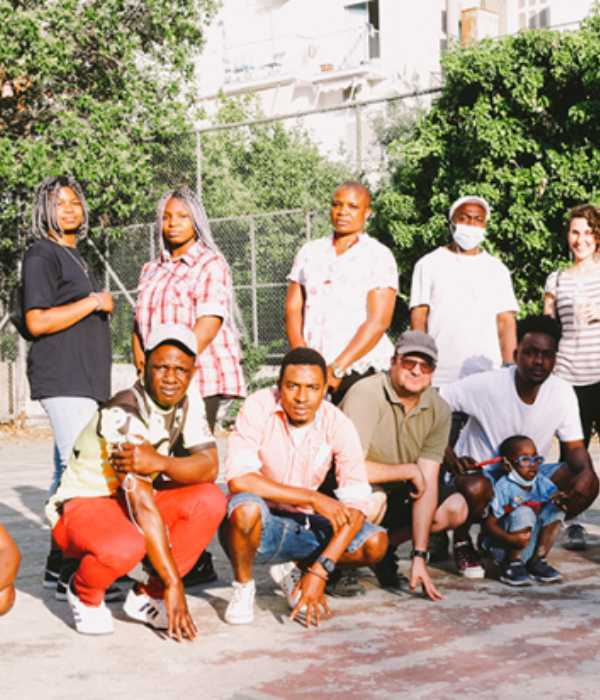Central Athens is home to people from many different social, ethnic and religious backgrounds, but if there is one big love that unites many of them, it’s soccer. The popularity of the beautiful game remains undiminished across the world and participation in a team has proven benefits by promoting a sense of belonging to a greater whole, a sentiment that is even more important for people like migrants who have not yet developed a strong attachment to their place of residence.
Creating this sense of belonging and camaraderie was the driving force behind Umoja-Enosi, the first pan-African soccer team in Greece, created in 2019 with the support of the Greek branch of Service Civil International (SCI) in downtown Patissia. The team has 20 members, all young men from different parts of Africa, who are either asylum seekers, recognized refugees or second-generation migrants born in Greece.
Membership in this highly promising team, which plays in an independent championship and organizes fair play and soccer technique seminars, has allowed many of the players to make strides in the process of assimilation. Their effort is bolstered by Bala Patissia a community activism group whose area of interest is centered around the park and soccer pitch on the corner of Kambouroglou and Samara streets in Kato Patissia.
The team hopes to revive the soccer pitch that was created there in 1986 but has since fallen into disrepair. Their chief aim is to returf a five-aside pitch and create a space where local sports and cultural groups can train, play and perform while also organizing an annual soccer festival. The group is also trying to spruce up the surrounding park to make it more neighborhood-friendly – if anything, the pandemic has highlighted the importance of such open spaces in city neighborhoods.
Nine initiatives
Bala Patissia is a part of Co-Athens, which is in turn a part of the European pilot project Curing the Limbo and is backed by the City of Athens’ Develop Athens agency.
“We are carrying out nine pilot-phase initiatives in different Athenian neighborhoods like Exarchia, Kerameikos and Akadimia Platonos, which are aimed at assimilating refugees,” said project head Haris Biskos at a recent City of Athens press conference presenting the initiative. “We are seeking to bring people close together,” he added.
“Co-Athens is the culmination of a years-long effort, an initiative that is not about what we can do about the refugees, but what we can do with them,” added Melina Daskalaki, head of Develop Athens and the municipal authority’s refugee department.
Source: ekathimerini.com
Author: Ioanna Fotiadi
